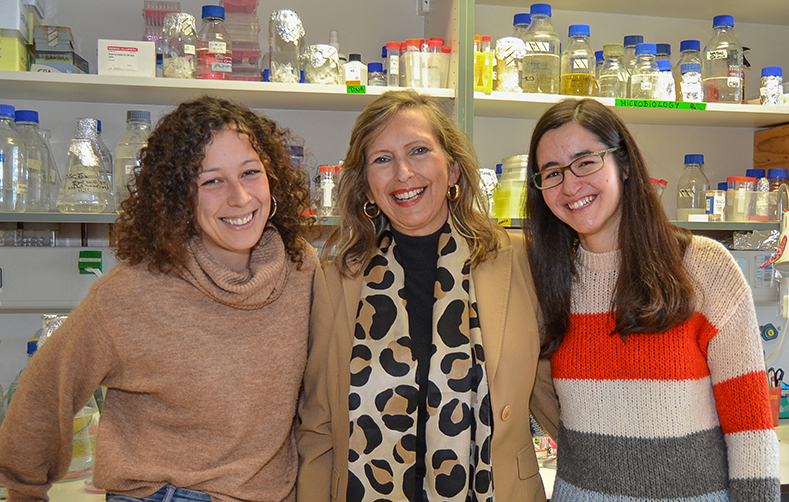Regulating the terminator
Oeiras, 12.02.2019
Transcription termination is a critical step in the control of gene expression. One of the major termination mechanisms is mediated by Rho factor that dissociates the complex mRNA-DNA-RNA polymerase upon binding with RNA polymerase. Now, researchers from Cecília Arraiano Lab at ITQB NOVA have disclosed an additional player in this pathway. The new proposed model contemplates the action of small RNA SraL in the protection of rho mRNA from premature transcription termination by its own protein Rho, which is conserved in most bacteria. The work was published in PNAS (Proceedings of the National Academy of Sciences of the United States of America).
“We knew that sRNA SraL was having an important role in gene expression but it was very difficult to understand what it was doing”, says Cecília Arraiano, one of the two corresponding authors of the work and group leader of Control of Gene Expression Lab at ITQB NOVA. “In collaboration with colleagues from Canada and France, we devised new ways of looking into the interaction of SraL and mRNA and we were very happy with the surprising results. Being recognized by our peers at PNAS makes this paper very important not only for us but for all the scientific community. With this discovery we have added a new level of complexity in transcription termination and therefore Rho-dependent termination has to be reconsidered.”

Original paper
PNAS, published ahead of print February 4, 2019 doi.org/10.1073/pnas.1811589116
SraL sRNA interaction regulates the terminator by preventing premature transcription termination of rho mRNA
Inês Jesus Silva*, Susana Barahona, Alex Eyraud, David Lalaouna, Nara Figueroa-Bossi, Eric Massé and Cecília Maria Arraiano*
*Corresponding authors







